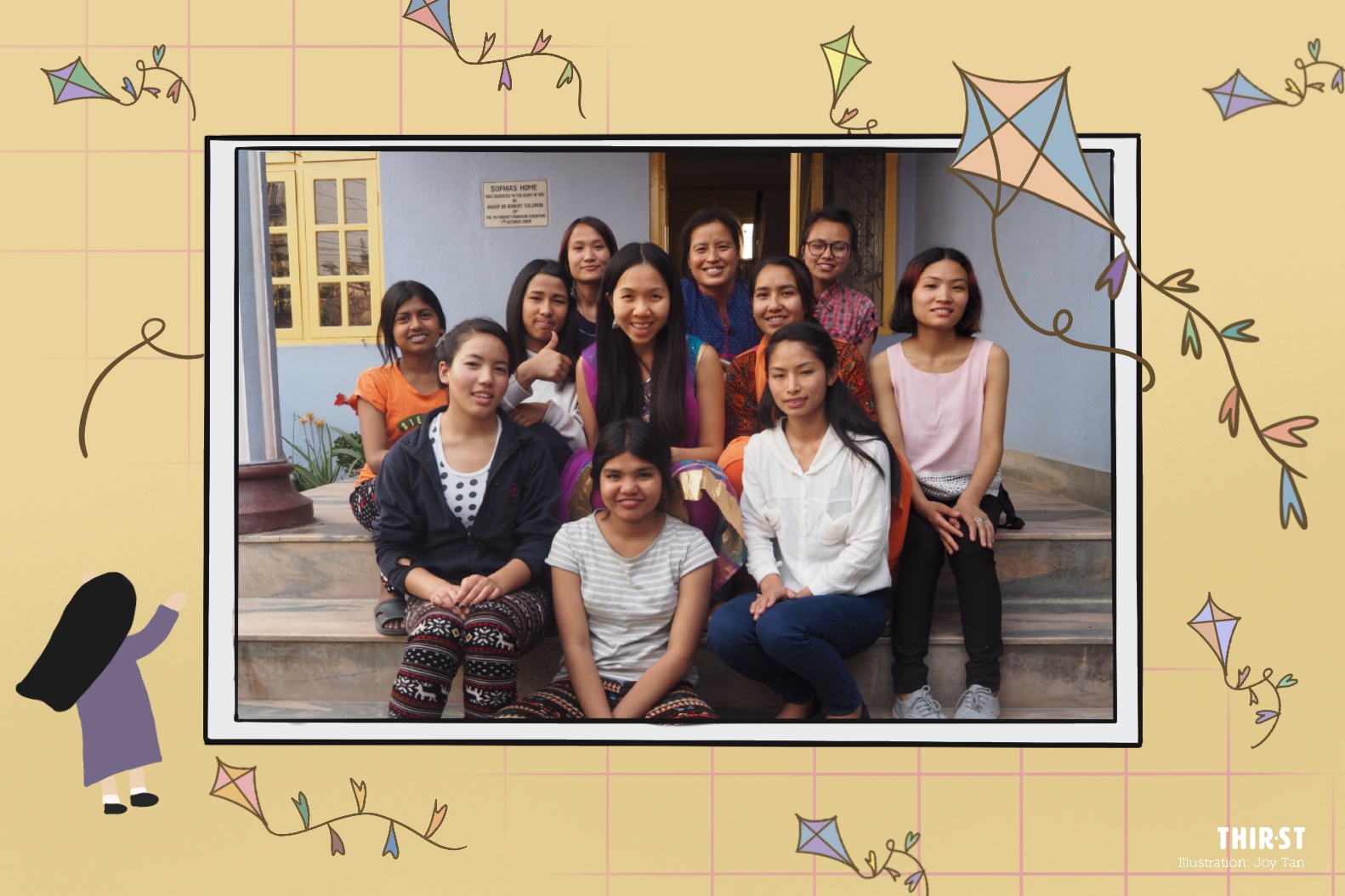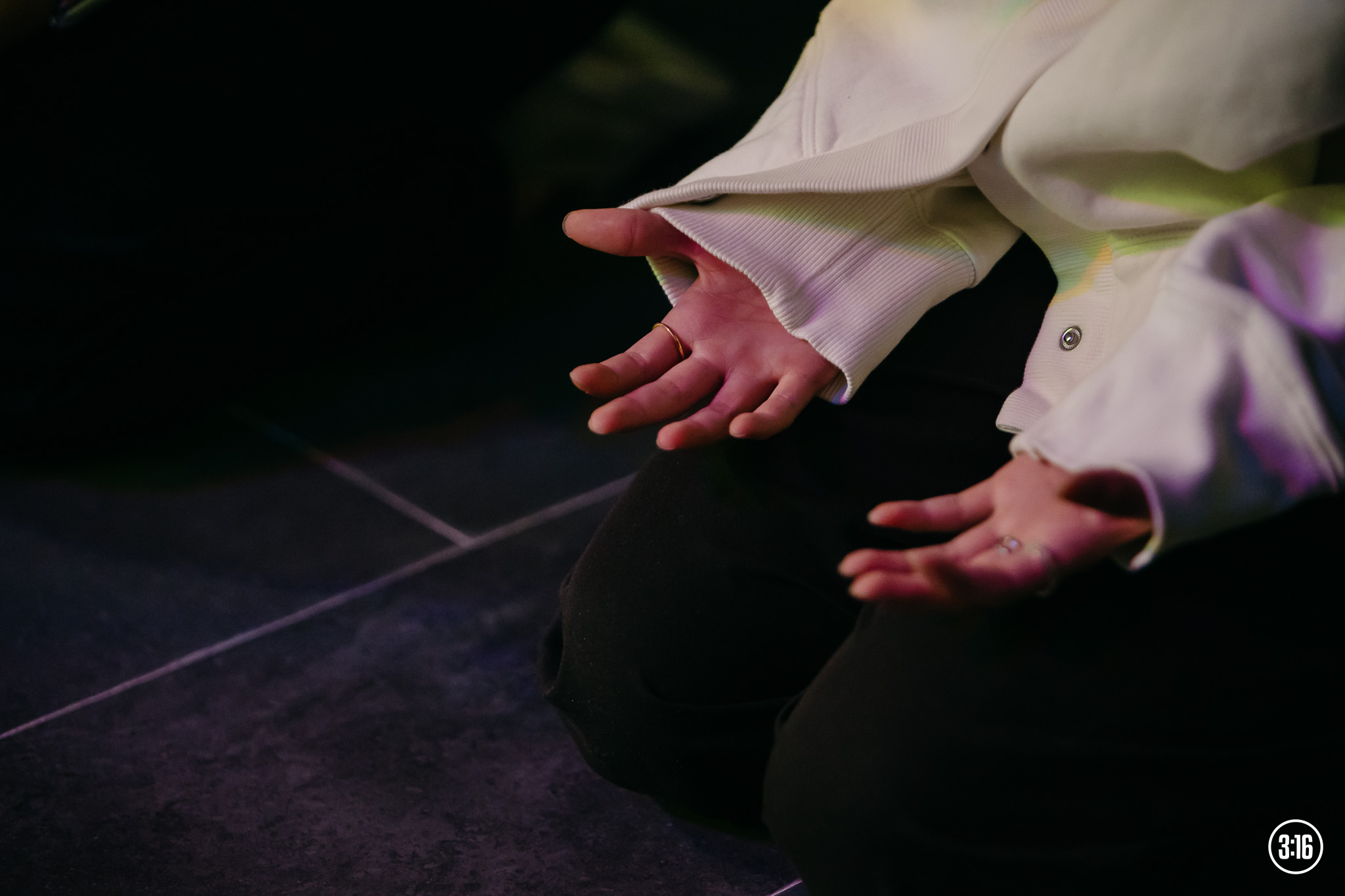When migrant workers were beginning to fall ill with COVID-19 in Singapore, Tam Wai Jia was teaching as an educator at medical school.
The young doctor had left clinical work to focus on public health research and education for seven years by then. But she couldn’t help but feel burdened by what she heard.
“My mentor was leading the migrant worker outbreak operations for the isolation facilities in Singapore, and he shared with me what was happening,” shared the 34-year-old.
“I had this burning desire in my heart that I needed to do more. So I asked: ‘Can I go with you? Is there anything I can do?’
“He said: ‘Some of us are called to the frontlines, and some of us are called to support. But we are all just as important.’”
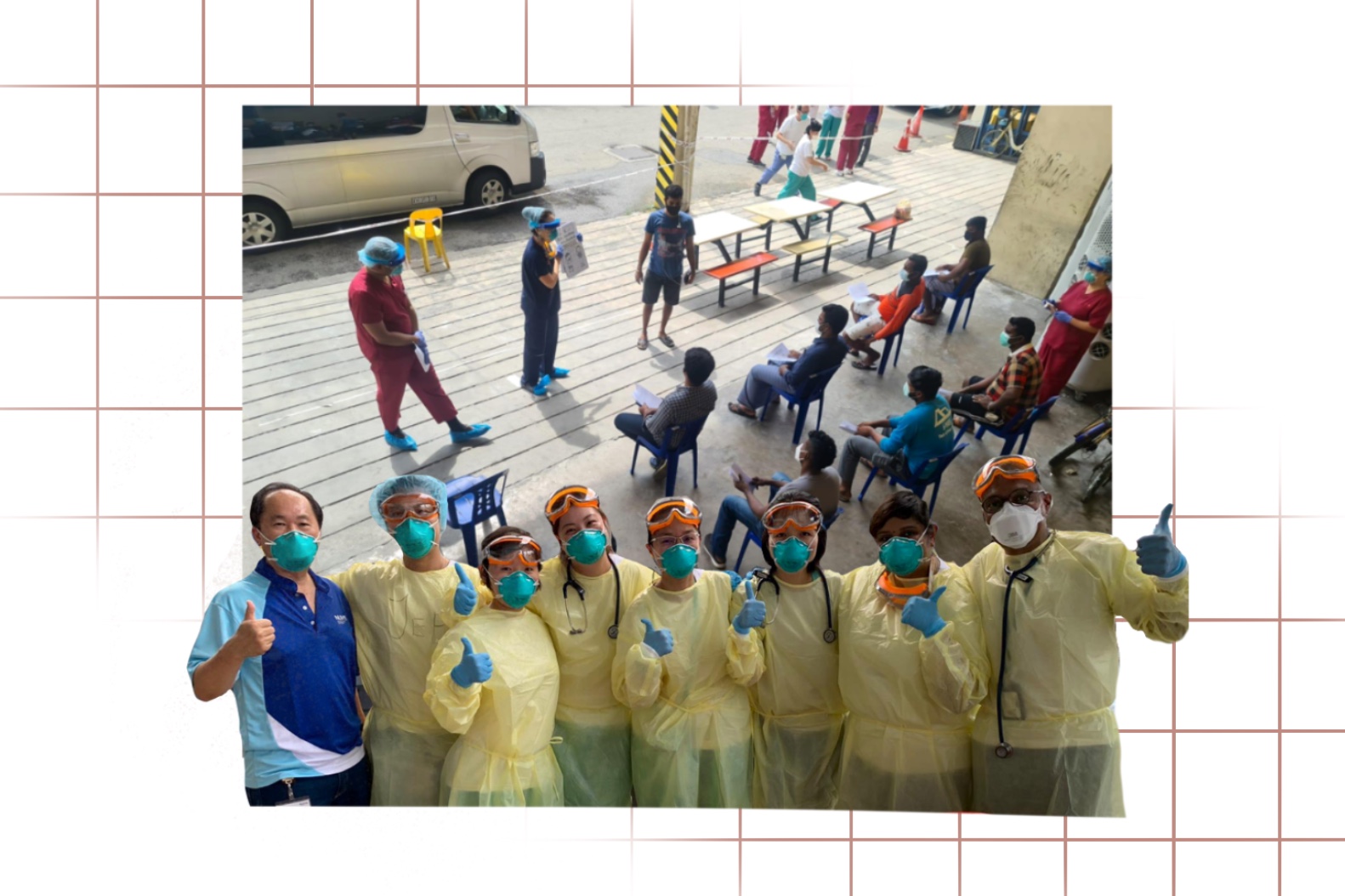
However, Wai Jia couldn’t shake off this nagging feeling.
Confiding in her husband, she asked: “If we had set up Kitesong Global to help underserved communities, isn’t this the time when it should be the most relevant?
“Is Kitesong just about picture books and feel-good projects? Is there nothing concrete we can do when there is a pandemic?”
A TERRIFYING BUT TIMELY MOVE
Heartbroken and helpless, Wai Jia turned to God in prayer. “My heart just couldn’t rest. I said: ‘Lord, is there anything I can do at all?’”
After that, things started to shift.
There was a need for NGOs to help with the migrant worker dormitory operations, and because of Wai Jia’s previous volunteer experience with relevant organisations, she was able to step in to help.
Connecting her mentor to people and resources, Wai Jia had the chance to visit the dormitories where she saw first-hand the needs on the ground.
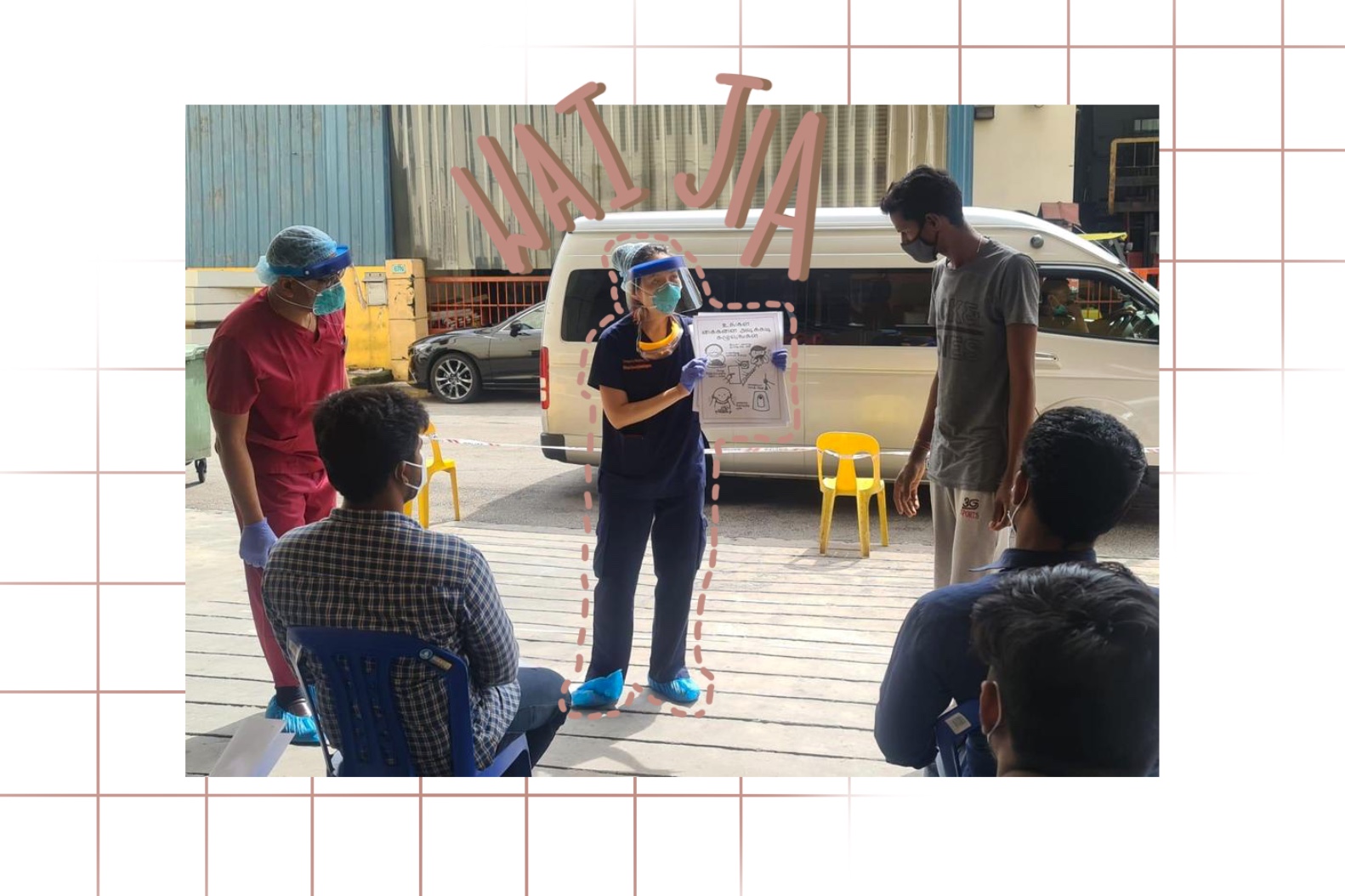
She was later asked if she could produce an orientation booklet for COVID-19 migrant worker patients housed in quarantine facilities because of her artistic background.
It was a valid request since pictures contained power that transcended language boundaries, but Wai Jia found herself feeling frustrated instead.
“I was offended. Is this what I’m good for? Just drawing?” she confessed candidly. “For all my public health training… is this all I can do in a pandemic?”
But it didn’t take long before God spoke to her, to show how He sees our gifts differently. When her husband shared the morning devotion he had read that day, Wai Jia knew it was no coincidence.
“Whatever your hand finds to do, do it with all your might…” (Ecclesiastes 9:10)
“I told myself, if this is all that I have to give to the pandemic, if this is my part to play, then I will do it,” she said.
Working on the booklet night and day, Wai Jia also asked to re-enter the frontlines and serve migrant workers where they were at.
“I REALISED WHY GOD PUT ME THERE”
Returning to the frontlines required Wai Jia to turn up in her full Personal Protective Equipment (PPE) – but she kept going back again and again.
“I realised the workers had no idea what they were going through, and that was why the orientation booklets were so important,” she observed.
At first, Wai Jia only helped with swabbing operations. But soon she started conducting workshops with the migrant workers, similar to the ones that Kitesong Global usually organised for schools and other organisations.
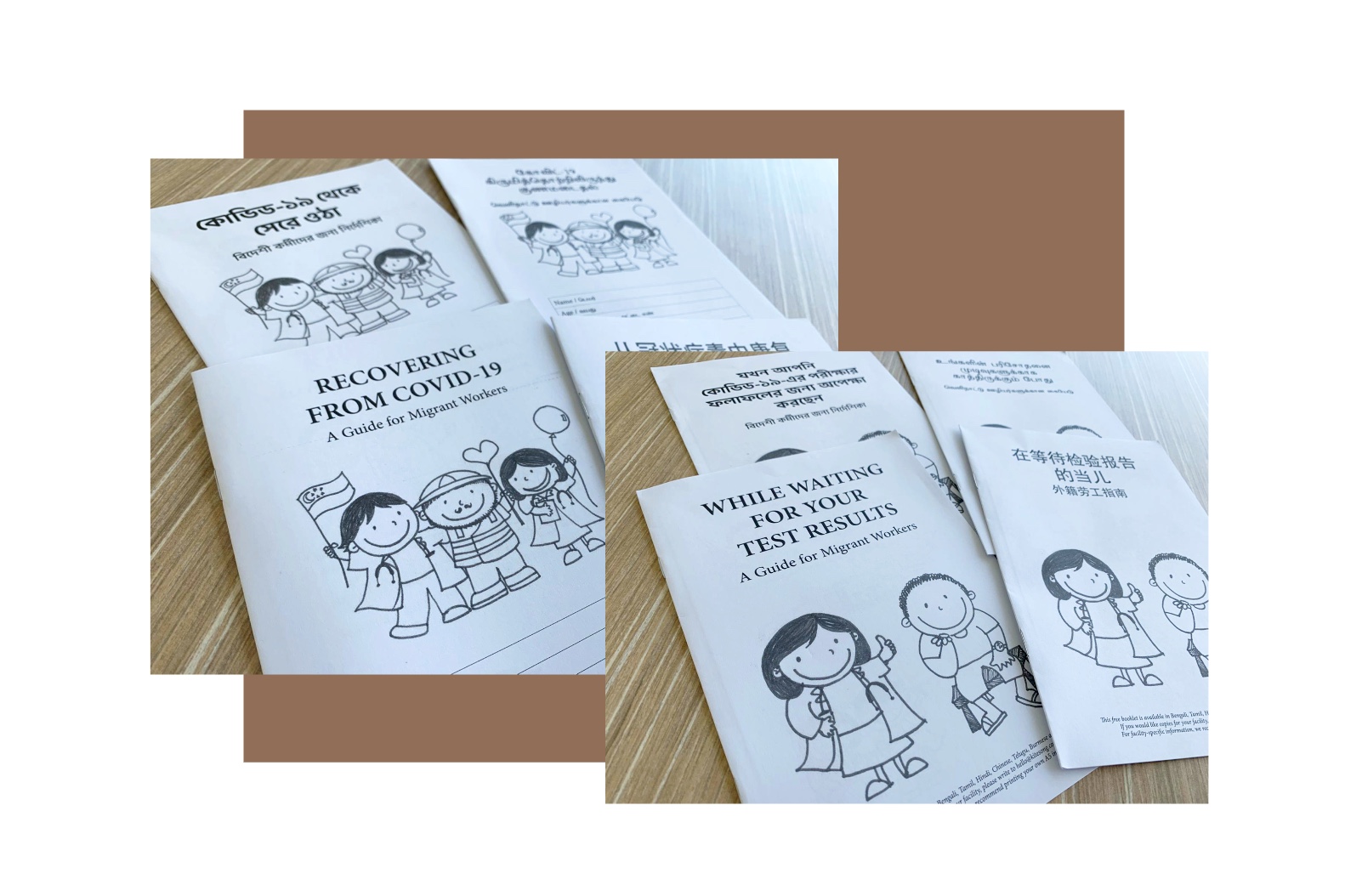
Explaining how that came to be, she said: “They were desperately needing people to conduct face-to-face engagements with workers at the isolation facilities and the dormitories. I realised that so many people wanted to but didn’t know where to start.
“People knew how to see migrant workers as patients, but they didn’t know how to do community engagement because of the language barriers.
“With the help of translators, I shared my experience of going to Nepal, meeting the girls and having my life changed. We translated the Kitesong story animation into Bengali, Tamil and Chinese, and I shared my story with them.”
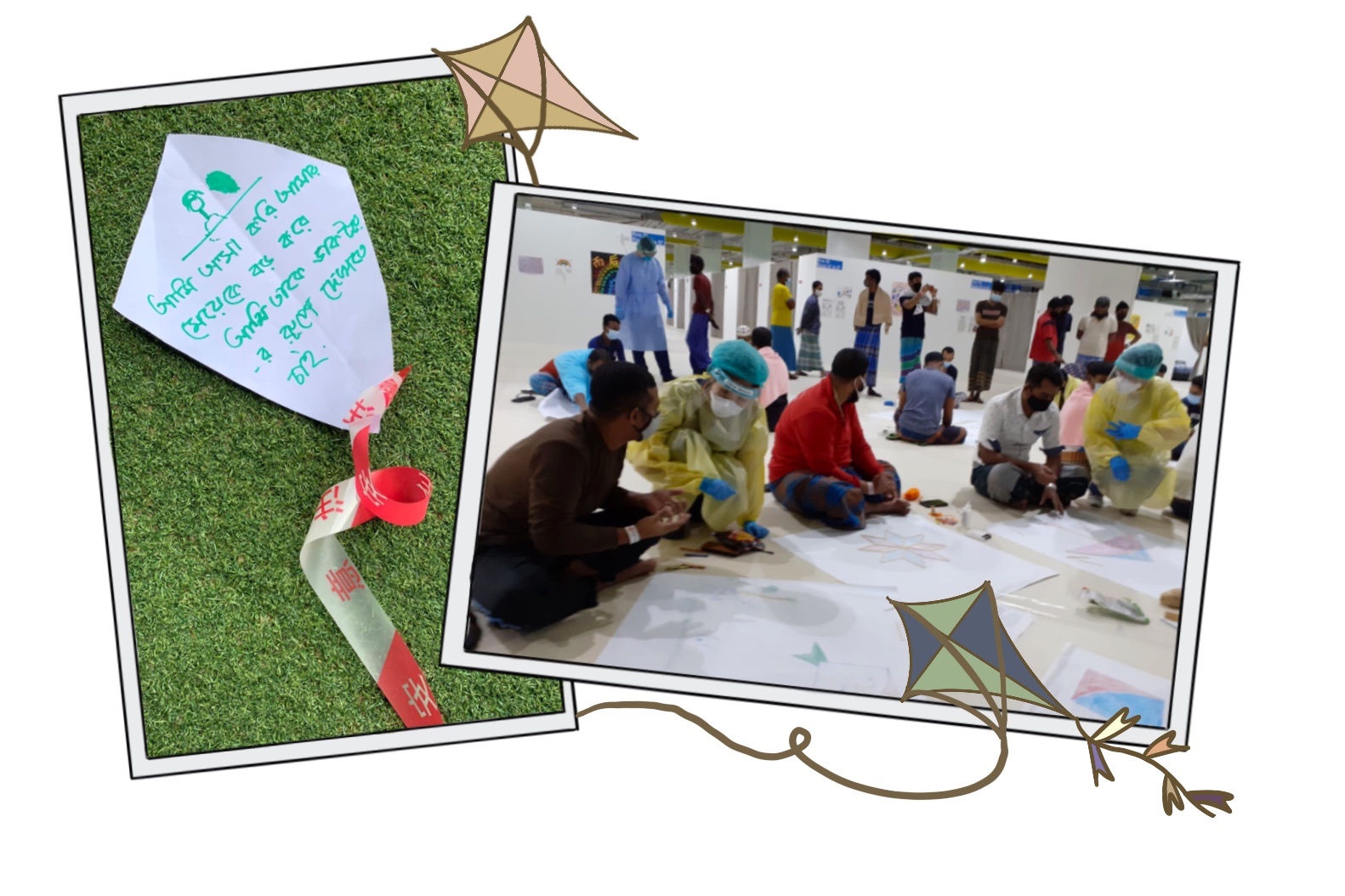
The migrant workers reflected on their experiences and aspirations by drawing their dreams on colourful kites that were pasted all over the isolation facilities, bringing cheer to the otherwise sterile environment.
“Seeing the dreams they had drawn on the kites was amazing,” said Wai Jia with a smile, remembering a man who had drawn his three-year old daughter on a kite.
His dream was for her to become a doctor to help others just as he had received help.
Wai Jia mused: “I realised that God gave me a burden to make a difference in the pandemic for a reason.
“I was at the intersection of not just art, but also healthcare to impact those in need. I had the power to mobilise volunteers to connect their gifts and passions with the world’s unmet needs, which is what Kitesong Global was created for.
“I had this network to the hospitals, the professors, the people deployed to the dormitories, plus my background in art and the non-profit sector.
“It was this marriage that was so combustive, that allowed this synergy to happen. That was how the different resources could be printed and funded, and then shared nationwide.”
She was so heartened by how the programme gave hope and joy to the migrant workers, bringing to the fore voices that would otherwise have remained silent.
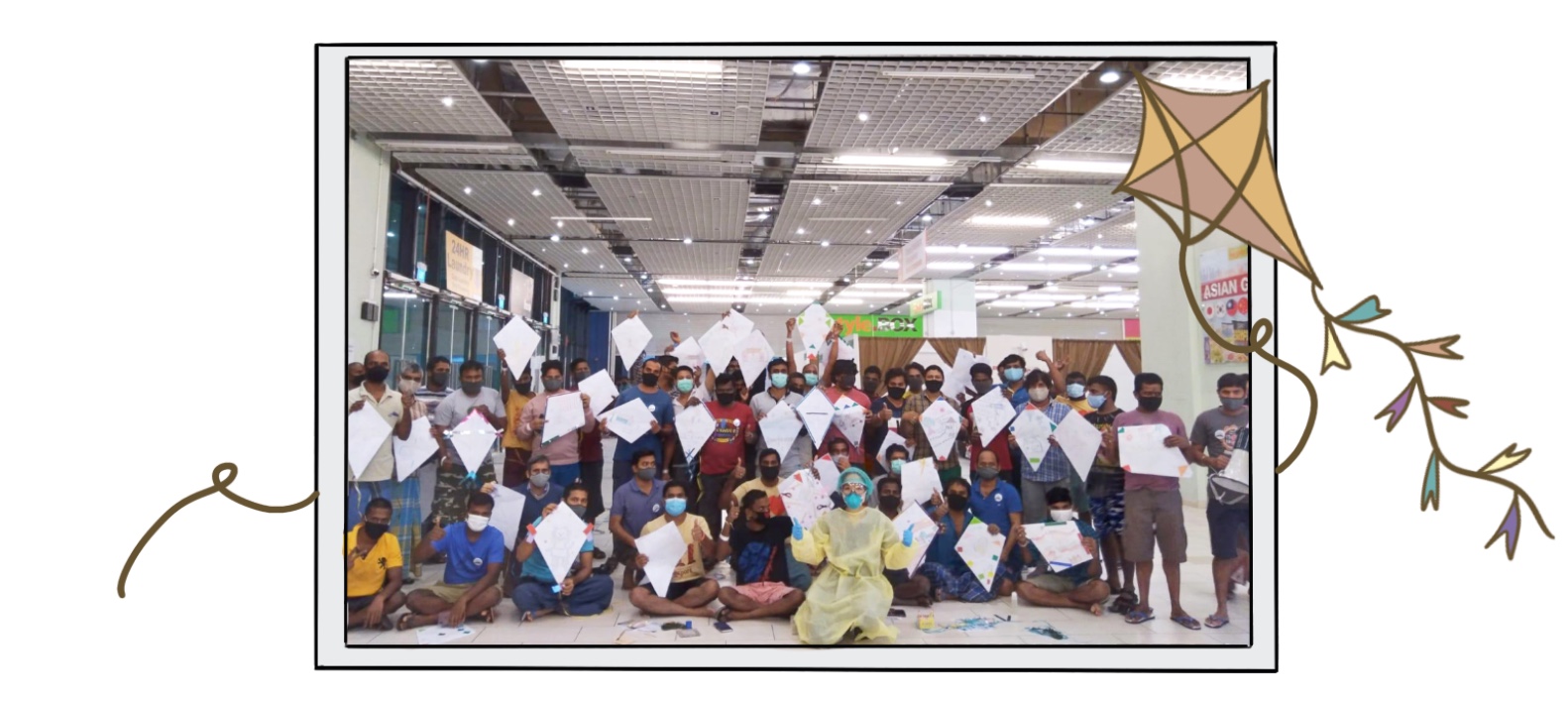
Soon after, Wai Jia was invited to speak at a webinar co-hosted by migrant worker leaders on social media. Puzzled by how she would connect with them, she simply shared her story of Kitesong.
“I did not imagine that more than 10,000 migrant workers would watch it. That was when I had a revelation – that vulnerability and authenticity are the keys to connection, and true empowerment.”
Since then, the webinars have become a regular mainstay of what has grown to be a nationwide digital campaign for migrant workers.
“When I look back, I realised that God had meant for it to happen. But at that point in time, I didn’t know,” admitted Wai Jia.
“None of this could have happened if I had just stayed in my comfort zone… God wanted me to press in desperately to ask Him for this opportunity to be part of a work that he had already planned.”
OUR “YES” CAN BRING BLESSING
If you go even further back, all of this can be traced to a step of faith that Wai Jia took as an 18-year-old.
In 2005, Wai Jia had just returned from a five-week trip to Nepal where she had met young girls whose stories of abuse and abandonment had broken her heart.
The girls never had a permanent place to call home. And yet despite their trials, they were filled with joy and hope for the future.
Inspired, Wai Jia produced a picture book that she titled Kitesong. The book eventually raised more than $100,000 for a children’s home. Three more books were published later.
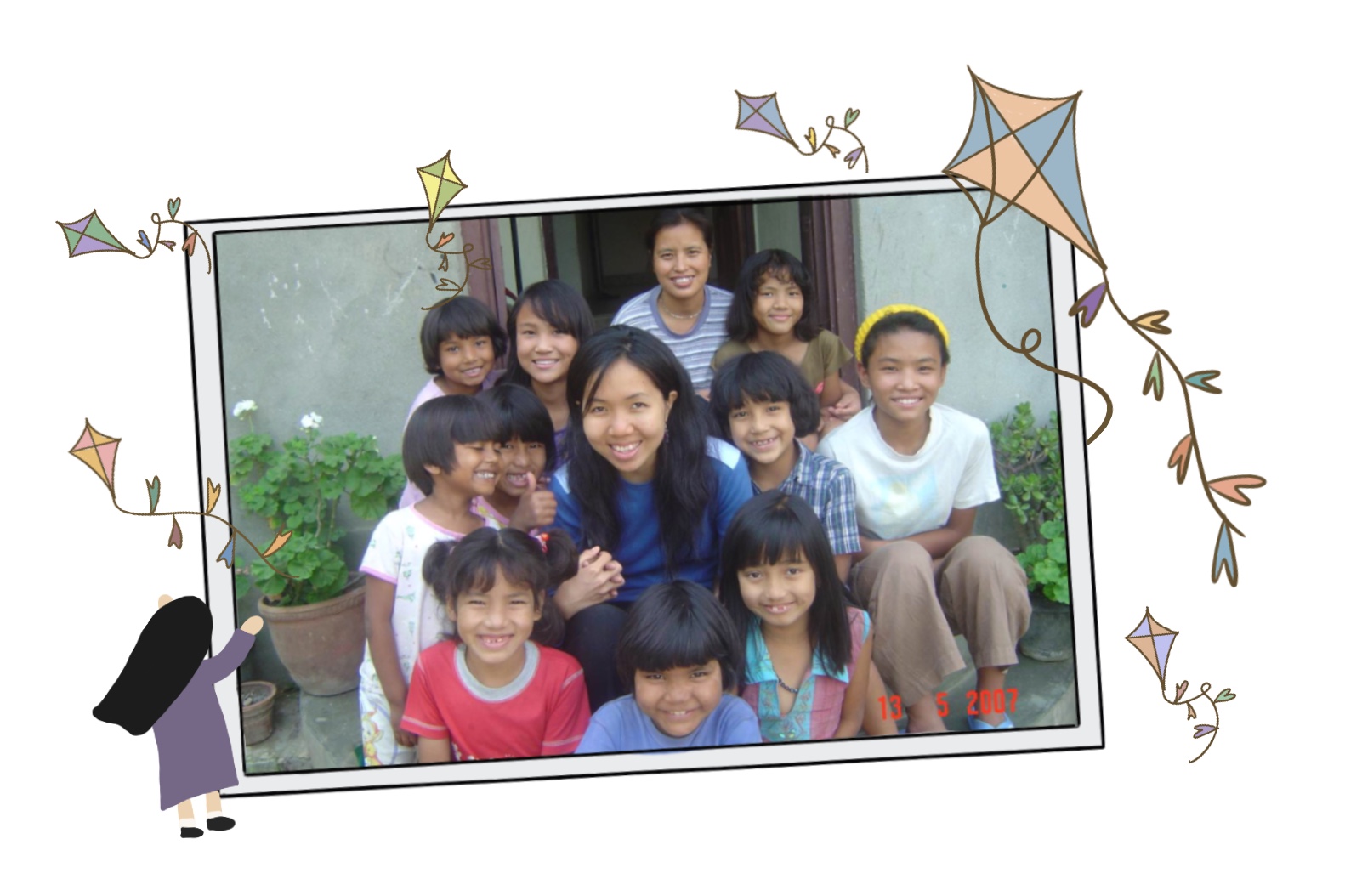
But it was only in 2018, when Wai Jia was studying for her Master’s degree at Johns Hopkins Bloomberg School of Public Health that God spoke to her about setting up a non-profit.
Setting aside her Sundays to pray, she received a vivid vision one day.
Wai Jia recalled: “I started to have a glimpse of what God wanted for Kitesong Global. The heartbeat of Kitesong was to be a blessing to the nations.”
Within a week, a linguist whom she had never met before emailed to offer her expertise in translation. By that month, the book was translated into seven other languages by people from around the world – all through unsolicited offers of help.
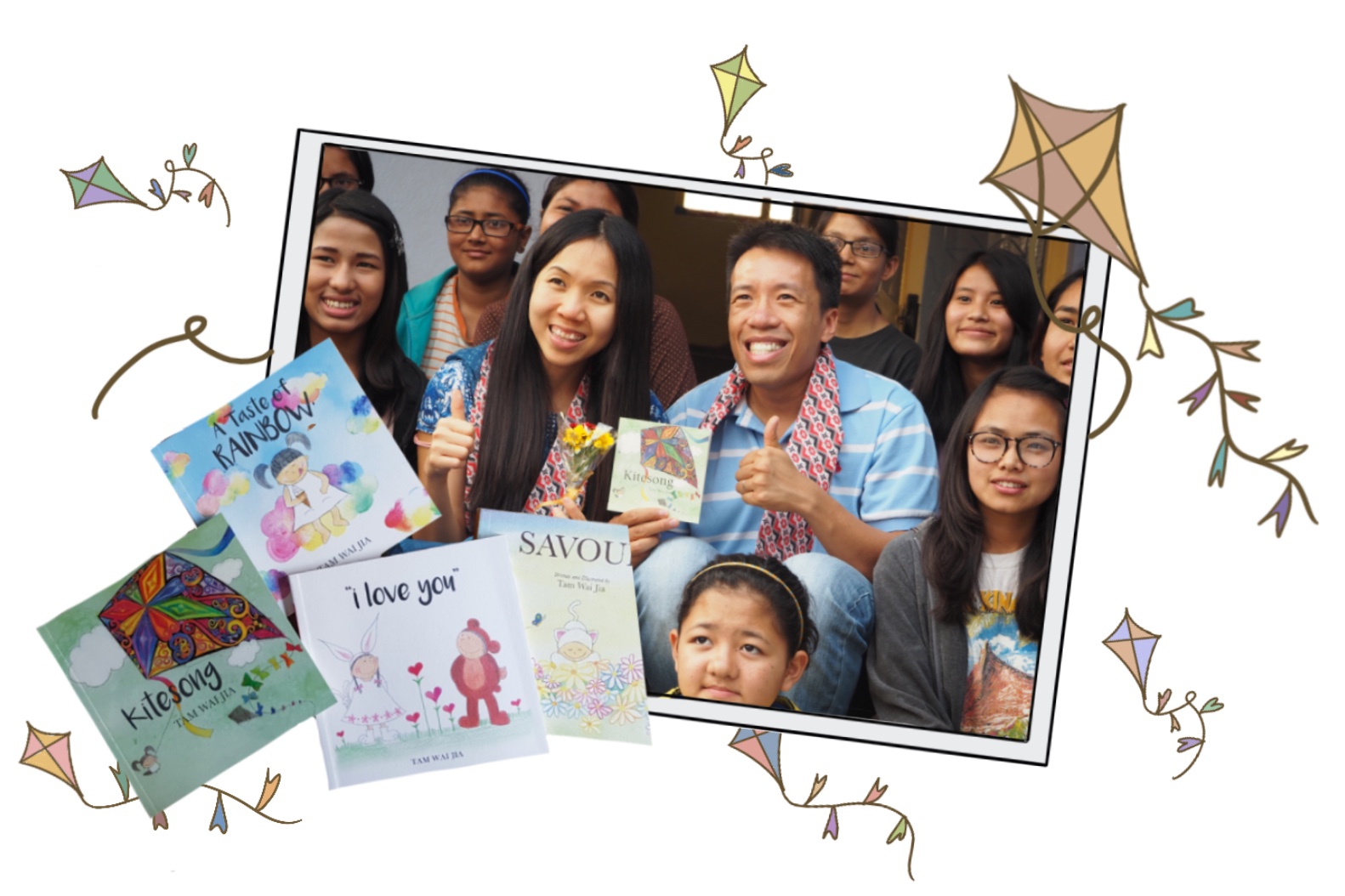
More than just raising funds and providing opportunities for less-fortunate children, the books are now being used in toolkits as platforms for conversation to inspire hope and catalyse change in people all around the world.
23-year-old Jessica Sudarta is one of the young people who has been blessed by the resources.
“I’ve always had a heart for kids, and I volunteered at Kitesong Global because its mission resonated so much with me,” she said, recollecting how she got involved in the non-profit’s translation work and ended up using them in literacy programmes to reach underserved children in rural areas.
NO DREAM IS TOO SMALL
Wai Jia said: “Something I want to share with young people -and even myself – is that there are so many times you think that your dream is too small, that it’s just not worth taking a risk for. But who are you to come to that conclusion?
“God is the one who put that nudging inside of you, He is the one who gave you that calling. And if He has called you to do it, will He not see it to completion? Will He not provide? Will He not give you the courage, or allow the calling to come to fruition?
“Because this is the scary part. We can actually choose to say ‘no’. And if you choose to say ‘no’, two things can happen: He’ll either raise someone else, or there will be a void.”
Wai Jia added that the greatest privilege is that in saying “yes”, she has been blessed too.
“Through this journey of obeying Him, He has fulfilled the dreams in my heart that I haven’t even dared to share,” she said, revealing how 16 years ago, she had written in her application to medical school that she hoped she would be able to partner with the World Health Organization (WHO) someday.
This has come to pass as a result of the resources Kitesong Global could offer during the pandemic.
Wai Jia elaborated: “The crisis expanded our scope of work at Kitesong Global. I didn’t realise that we could also do crisis response and work with very vulnerable communities.
“The work we did with various partners was packaged into a toolkit for WHO to be contextualised in the region. And that really excites me because it’s international health.
“God used this opportunity to fulfil that dream of mine; He did not forget.”
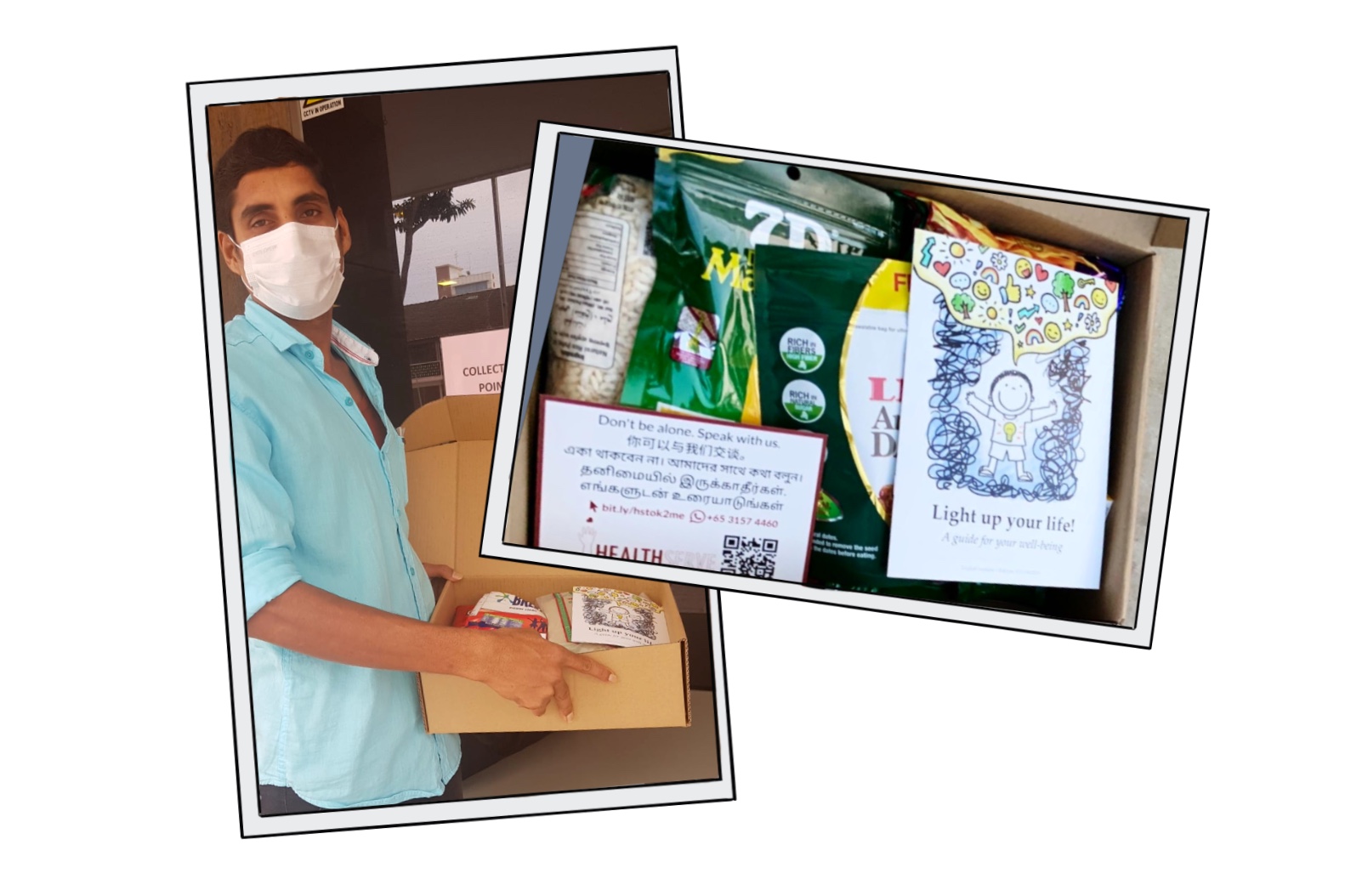
The initiative has also blossomed into My Brother SG, a nationwide network of partners who are aligning risk communication and community engagement efforts to bring better health to migrant workers.
Of late, schools, hospitals and ministries have also come forward to request for Kitesong Global’s digital toolkits, to engage youth and patients on topics of mental resilience, social responsibility and moral courage.
TAKING KITESONG TO GREATER HEIGHTS
Sharing about Kitesong Global’s next steps, Wai Jia said she is looking for volunteers and a full-time staff to join her small team.
She has been praying for a part-time or full-time executive intern with administrative, project management and communications background who would be keen to serve long term in the future.
“Someone committed, faithful and zealous to serve,” added Wai Jia.
Among other volunteer needs are journalism and copywriting, digital marketing, social media, volunteer and donor engagement, and videography.
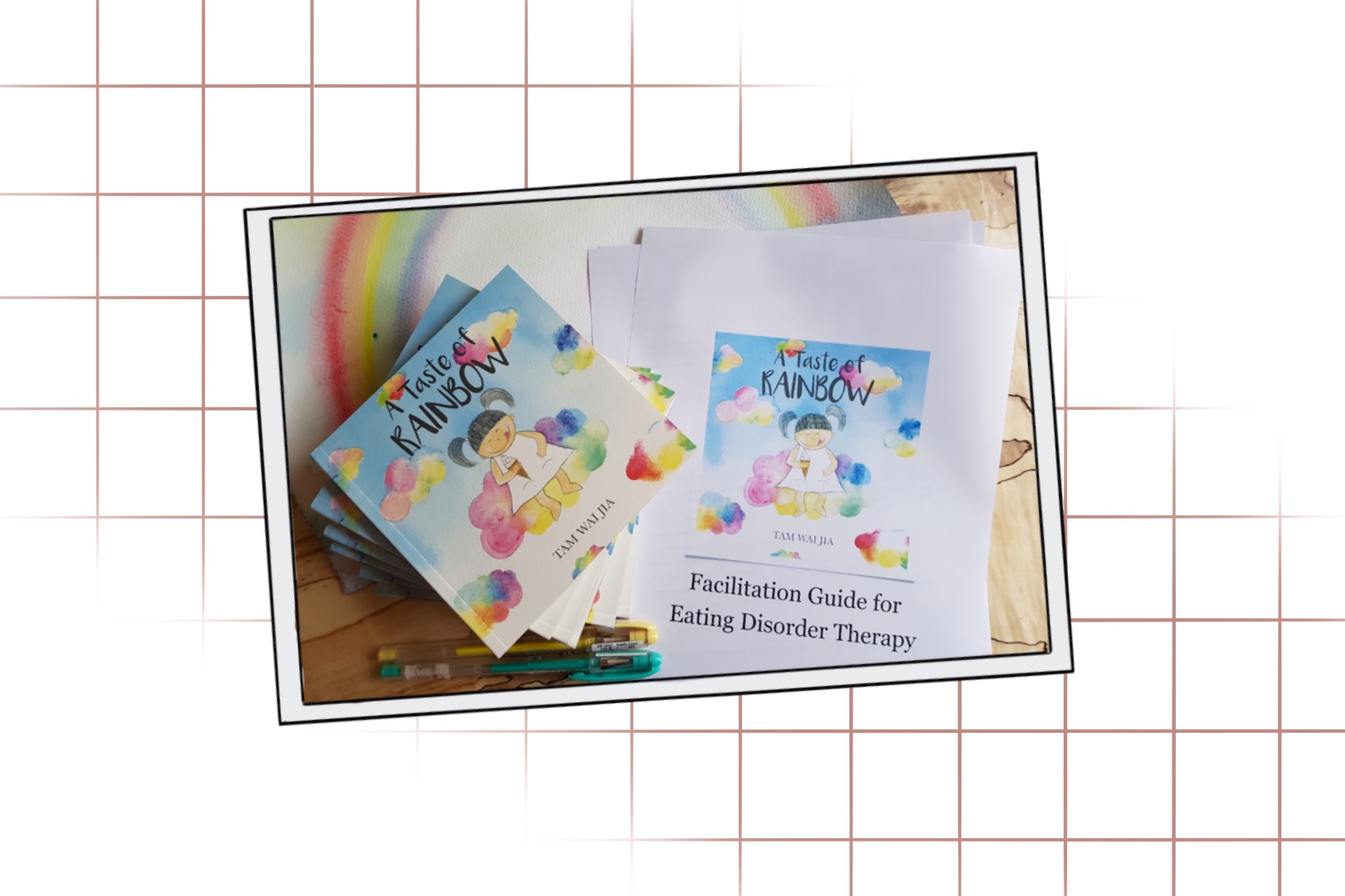
Wai Jia also desires that the toolkits may be used in more settings to help people unlock their hidden dreams.
Offering a word of encouragement to those who are still finding their path in life, she shared: “I’ve met too many young people who think their dream and gift is too small. But those are the very things that God wants to use.
“It’s not because of how smart, or how good or eloquent I was. It was just because I was willing to say ‘yes’. God doesn’t need your qualifications. God needs your availability.
“He needs your courage to say, ‘This is what God has asked of me, so I will do it. I will say ‘yes’, and I will stand in the gap.’”
If you’re interested to find out more about what Kitesong Global does and how you can contribute through volunteering or an internship/staff position, here are more details!
- What are some of the dreams you’ve had while growing up? Take time to revisit them.
- What are the burdens that God is placing on your heart right now? How can you respond to that?
- Are you living out God’s purpose for your life?


